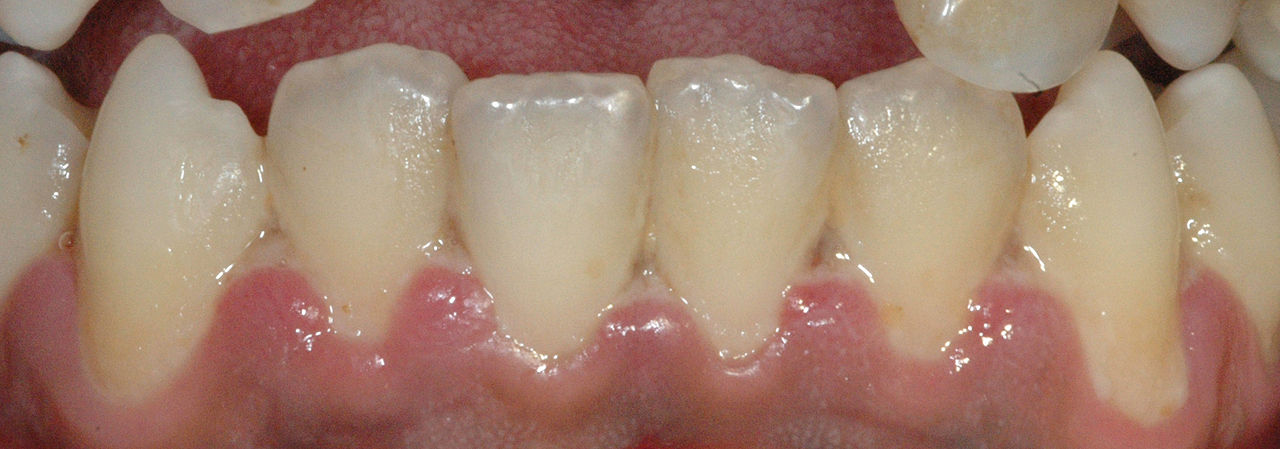Antibiotic prescribing
Necrotising Ulcerative Gingivitis (NUG)

A fairly mild presentation of acute necrotizing ulcerative gingivitis at the typical site on the gums of the lower front teeth.
As well as scaling, root surface instrumentation (RSD, RSI), and Oral Hygiene Instruction (OHI, including Chlorhexidine mouthwash), if there is systemic involvement (fever, malaise and lymphadenopathy), you should use antibiotics. However, this is rare with NUG.
That said, it may be impossible to undertake operative treatment on a patient with NUG, as it simply hurts too much, in which case antibiotics have to be the first line of management.
About NUG
Click here
In the early stages some patients may complain of a feeling of tightness around the teeth. Three signs/symptoms must be present to diagnose this condition: Other signs and symptoms may be present, but not always: Malaise, fever and/or cervical lymph node enlargement are rare (unlike the typical features of herpetic stomatitis). Pain is fairly well localised to the affected areas.
Metronidazole is recommended, though Amoxicillin is also effective.
Why is Metronidazole recommended?
What’s the down-side to Metronidazole?
Recommended doses for NUG:
Adults and over-10s: 400mg three times a day, for up to 5 days.
7-10 years: 200mg three times a day, for up to 5 days.
3-7 years: 200mg two times a day, for up to 5 days.
1-3 years: 100mg three times a day, for up to 5 days.
Review at 2-3 days, and stop if resolved.
Adults and over-6s: 500mg three times a day, for up to 5 days.
1-5 years: 250mg three times a day, for up to 5 days.
Less than 1 year: 125mg three times a day, for up to 5 days.
Review at 2-3 days, and stop if resolved.
You should not use powerful “last resort” drugs like Co-Amoxiclav or Clindamycin. They don’t work any better, and can lead to resistance.

